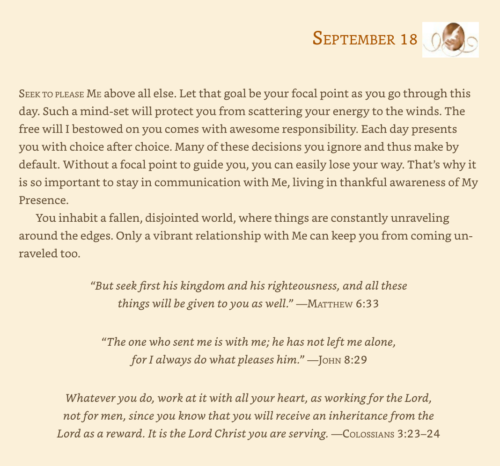Creating a Community of Compassion
When Jesus landed and saw a large crowd, he had compassion on them and healed their sick. —Matthew 14:14
This week of meditations begins with a homily from Richard Rohr on Matthew 14:13–21. He describes how Jesus created a community of compassion:
The gospel passage is quite good and delightful because it tells us very directly what God is about. Jesus is all about meeting immediate needs, right here and right now. There’s no mention of heaven at all. It seems we’ve missed the point of what the Christian religion should be about, but we see how the disciples themselves missed the point: “Tell them to go to the village and take care of themselves” (Matthew 14:15). But Jesus does not leave people on their own!
Look at the setting. Jesus is tired. The gospel begins with him withdrawing to a deserted place to be by himself. Sure enough, the crowds follow after him, but he doesn’t get angry or send them away. He recognizes the situation and moves to deal with it. Then the passage goes further and states, “His heart was moved with pity” (Matthew 14:14). If Jesus is our image of God, then we know God has feelings for human pain, human need, and even basic human hunger. The gospel records that he cured the sick, so we know God is also about healing, what today we call healthcare. Sometimes, we don’t even believe everyone deserves that either! Jesus says, “There is no need for them to go away. We will feed them” (Matthew 14:16).
The point in all the healing stories of the gospels is not simply that Jesus can work miracles. It is not for us to be astounded that Jesus can turn five loaves and two fish into enough for five thousand people, not counting women and children. That is pretty amazing, and I wish we could do it ourselves, but what Jesus does quite simply is feed people’s immediate needs. He doesn’t talk to them about spiritual things, heavenly things, or churchy things. He doesn’t give a sermon about going to church. He does not tell us what things we are supposed to be upset about today. He knows that we can’t talk about spiritual things until we take away people’s immediate physical hunger. When so much of the world is living at a mere survival level, how can we possibly talk about spiritual things?
The important thing that God seems to want to be doing in history is to create a community of compassion where people care about one another. It is not only the feeding that matters to us, it is also the caring for other people’s hunger and needs. Jesus never once talked about attending church services, but he talked constantly about healing the sick and feeding the hungry. That is what it seems to mean to be a follower of Jesus.
Mirrored Suffering Leads to Compassion
Father Richard reflects on how sitting with our own suffering allows us to extend compassion to others:
The outer poverty, injustice, and absurdity we see when we look around us mirrors our own inner poverty, injustice, and absurdity. The person who is poor outside is an invitation to the person who is poor inside. As we nurture compassion for the brokenness of things, and learn to move between action and contemplation, then we find compassion and sympathy for brokenness within ourselves. We, too, are full of pain and negativity, and sometimes there is little we can do about it.
Each time I was recovering from cancer, I had to sit with my own broken absurdity as I’ve done with others at the jail or hospital or soup kitchen. The suffering person’s pain and poverty is visible and extroverted; mine is invisible and interior, yet just as real. The two sympathies and compassion connect and become one world. I think that’s why Jesus said we have to recognize Christ in the least of our brothers and sisters. It was for our redemption, our liberation, our healing—not merely to “help” others and put a check on our spiritual resume. Rather, when we see it over there, we’re freed in here, and become less judgmental. I can’t look down on a person receiving welfare when I realize I’m receiving God’s welfare. It all becomes one truth; the inner and the outer reflect one another.
As compassion and sympathy flow from us to any person marginalized for whatever reason, wounds are bandaged—both theirs and ours. We’ll never bandage them all, nor do we need to, but we do need to get close to the wounds. That idea is imaged so well in the gospels with Thomas, the doubting apostle, who wanted to figure things out in his head. He had done too much inner work, too much analyzing. He always needed more data before making a move. Then Jesus told Thomas to put his finger inside the wounds in Jesus’ hands and side (John 20:27). Then and only then did Thomas begin to understand what faith is all about. [1]
Jesus invites Thomas and all doubters into a tangible religion, one that makes touching human pain and suffering the way into both compassion and understanding. For most of us, the mere touching of another’s wound probably feels like an act of outward kindness; we don’t realize that its full intended effect is to change us as much as it might change them (there’s no indication that Jesus changed, only Thomas). Human sympathy is the best and easiest way to open heart space and to make us live inside our own bodies. God never intended most human beings to become philosophers or theologians, but God does want all humans to represent God’s own sympathy and empathy. And it’s okay if it takes a while to get there. [2]
